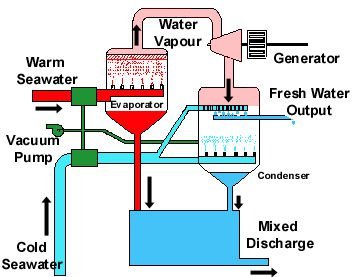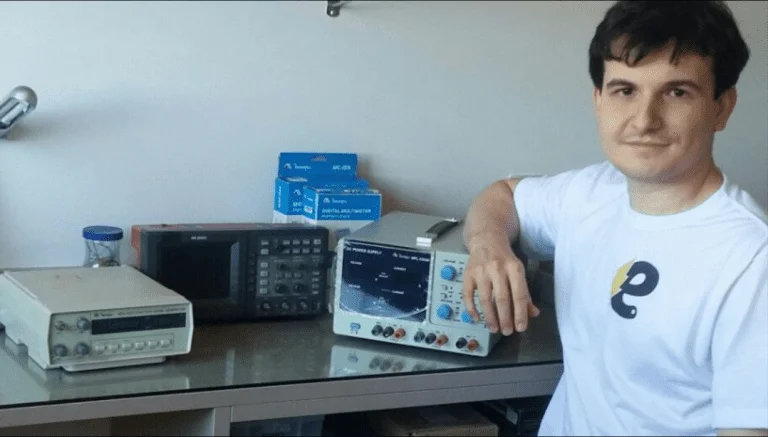Exists another way to extract energy from oceans which don’t involve waves and tides. The method of oceanic thermal energy conversion (OTEC) is today’s subject.
Oceanic thermal energy
Sea’s surface receives solar light, creating a temperature difference between the surface and deep sea. This difference is called temperature gradient.

The temperature difference must be at least 20°C in 1000 meters deep to be viable the installation of OTEC plant. When higher difference of temperature, higher is energetic potential. Naturally, tropical waters receive more solar light intensity. Therefore, tropical regions are more appropriated for this type of energy generation. This image shows temperature of oceans in 2013, but it is a good approach for today.
 The area in hot colors in this map are more suitable to use oceanic thermal energy.
The area in hot colors in this map are more suitable to use oceanic thermal energy.

OTEC plants
There are three configurations of oceanic thermal power plants.
Open cycle
Hot water from surface goes to a flash evaporator. Where water pass through a reduction pressure valve and a diffuser. Part of water is evaporated and purified, while other part go to output in opposite direction. Reduction of pressure reduces boiling point and some evaporators can have a pump which reduce pressure in the chamber.

The steam turns a low pressure turbine, then goes to a condenser, where returns to liquid state and it is disposed in sea. Vacuum pumps suck water from different depth.

Closed cycle
In this configuration, it is used a liquid with low boiling point, usually propane or ammonia, to turn the turbine. Hot water from surface is pumped to evaporate the liquid with a heat exchanger. After pass through turbine, cold water from deep is pumped to a heat exchanger, condensing the fluid. The latter is driven by a pump to evaporation and cycle continues.

Hybrid cycle
This configuration combines cycles shown before. Serves to generate energy and desalinate water to other applications.

Some types of OTEC plants mix water and ammonia, will be explained in the future. Oceanic thermal energy plants don’t really need to stay in sea. Can be installed on shore.

Obstacles
OTEC is a type of renewable solar energy. However, there are some obstacles like:
- High cost in comparison with other forms of energy generation.
- OTEC was only tested in small scale. Therefore, companies and government don’t invest enough.
- A OTEC plant can cause environmental impact modifying local ecosystem.
- Geographic limitation as shown before.


